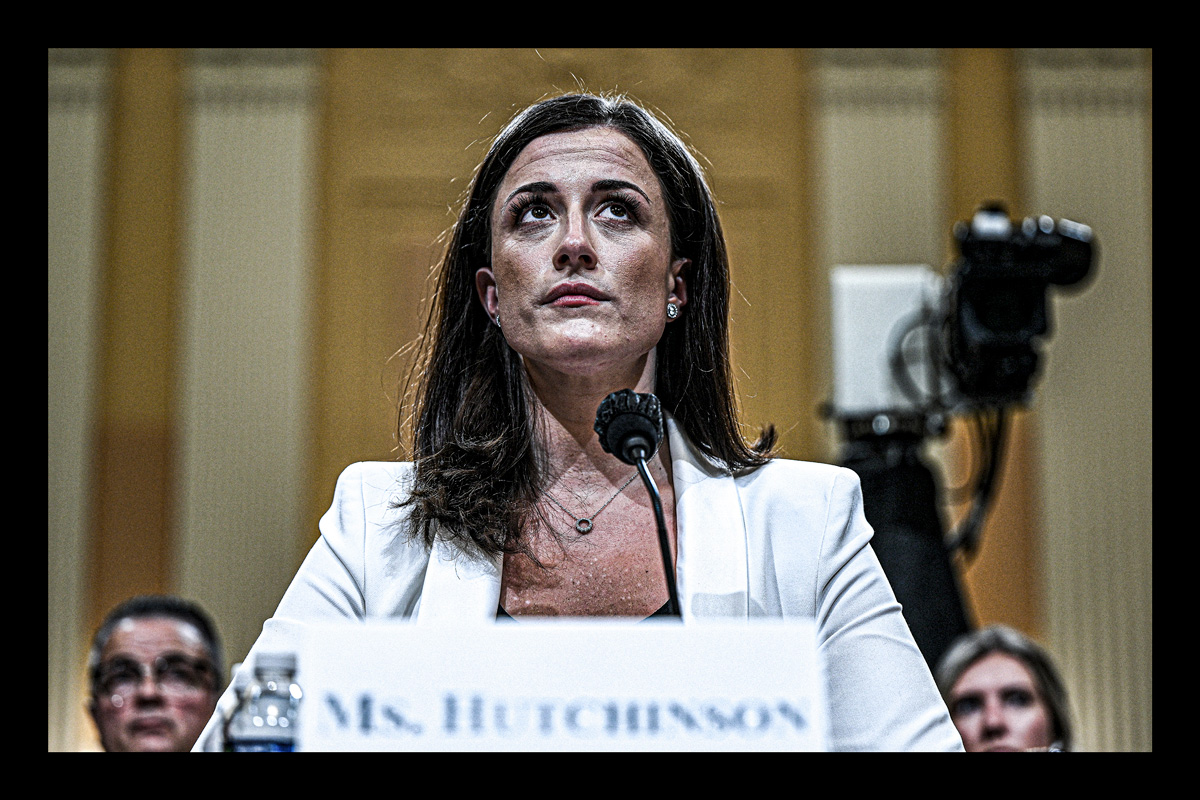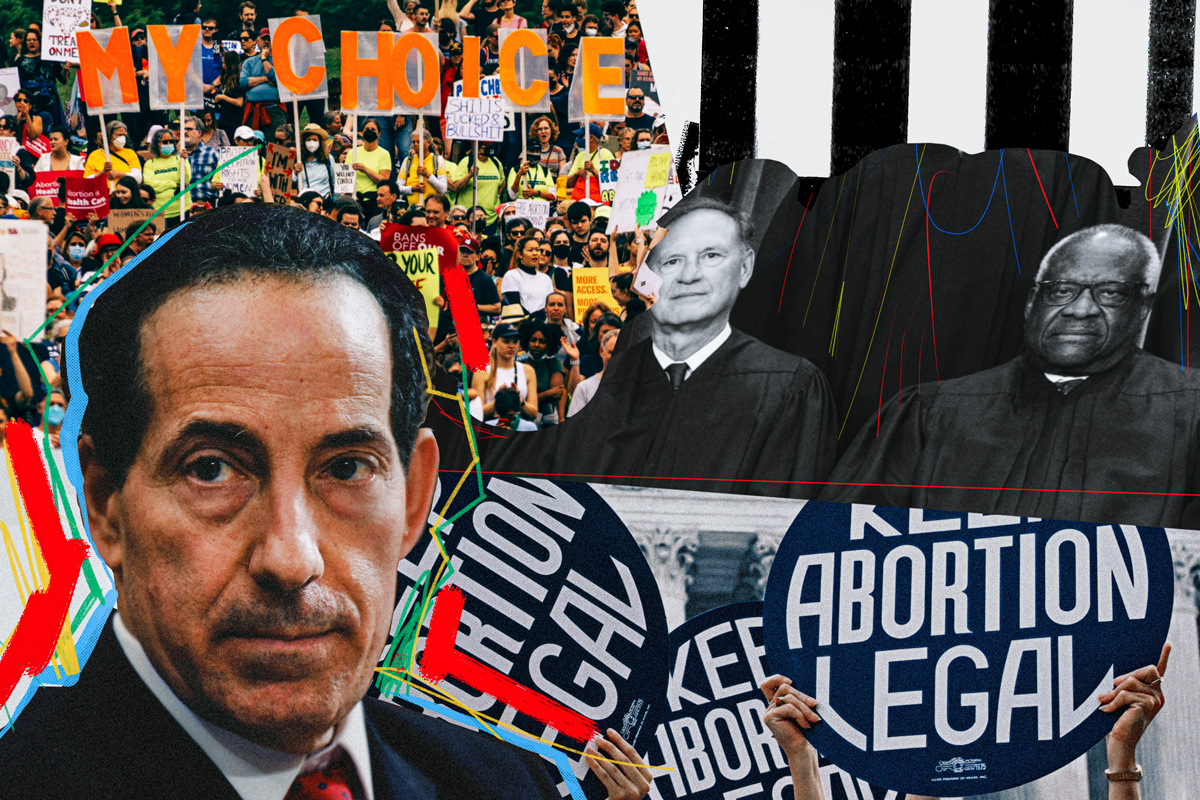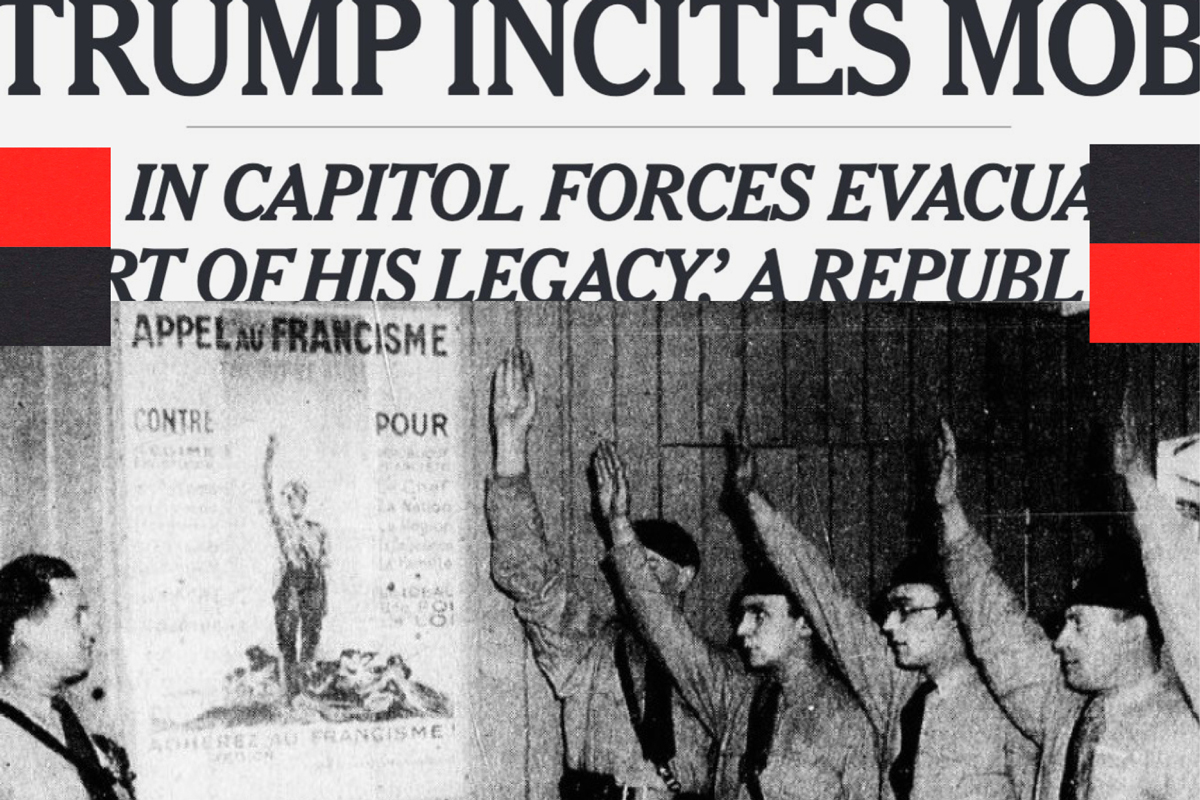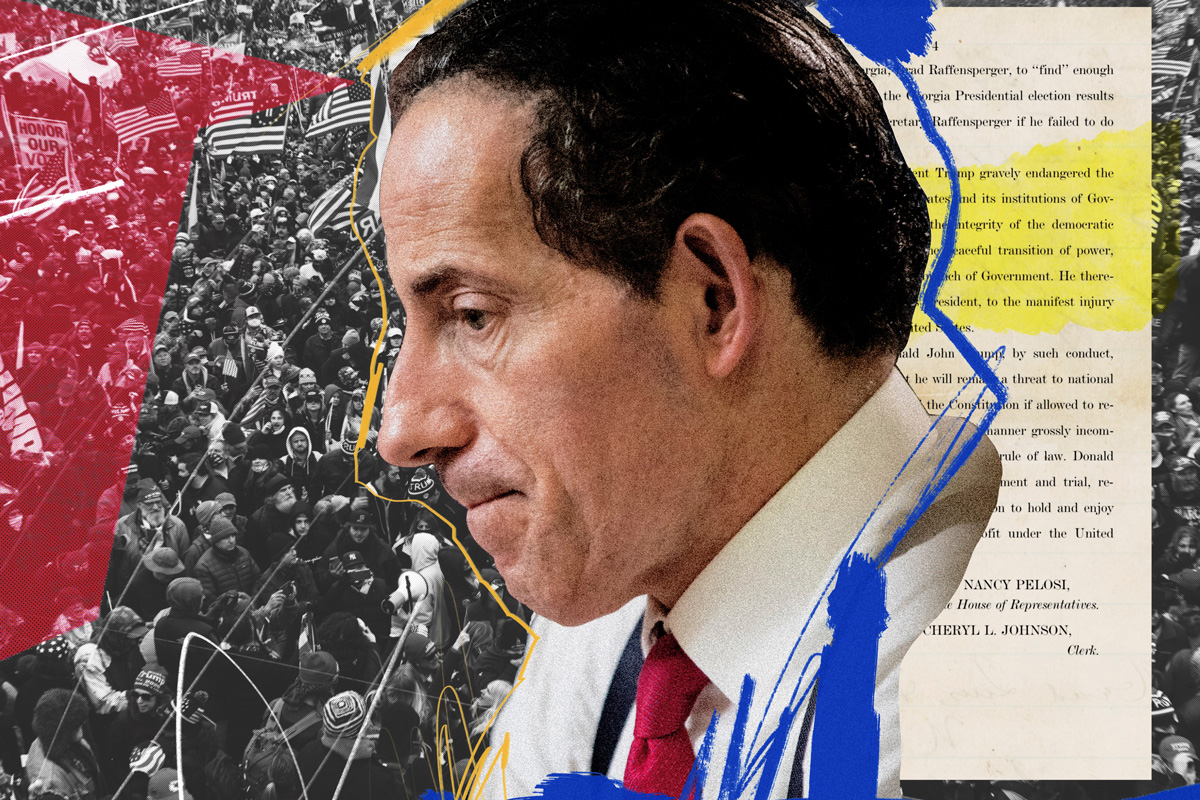The week after the United States Supreme Court rescinded the long-established constitutional right to reproductive freedom, the stunning testimony of former Trump White house aide Cassidy Hutchinson before the House January 6 committee has demolished whatever remains of the conceit that we continue to live in a formal democracy. Hutchinson recounted in excruciating detail how President Donald Trump and his apparatchiks sought by any means necessary—including the incitement of organized mob violence—to overturn the legitimate results of the 2020 presidential balloting and seize power in a coup. The upshot of this chilling inside view of the White House putsch for maximum executive power, just like the jury-rigged, ahistorical decision of the U.S. Supreme Court in Dobbs v. Jackson Women’s Health Organization, is a confession of advanced anti-democratic sclerosis at every level of national government. The United States is exposed, pitifully, as a nation of men, not laws—and a country where the logic of white impunity has every facet of our right to self-government under siege.
Now that the full picture of January 6 is (far too late) coming into view, it’s impossible to miss how it’s firmly in line with the fundamental operations of white privilege to thwart democracy throughout the country’s history.
Hutchinson explained how Trump was determined to join in with the mob that set about laying siege to the Capitol, in an effort to short-circuit the certification of the election results, and coerce Vice President Mike Pence to refrain from approving the election outcome—all in order to set forth a bogus slate of alternate electors to deliver an illegitimate, violently seized second term to Trump. When the president learned that many members of the crowd assembled for his speech in Washington promoting the putsch were armed, Trump demanded that they be permitted into the inner reaches of the crowd, where metal detectors (Magnetometers, or “mags” in the argot of DC crowd control) were in place to protect the president and other speakers from the podium from the threat of violence. “I don’t f’ing care that they have weapons,” Trump barked, according to Hutchinson. “They’re not here to hurt me. Take the f’ing mags away.”
Trump’s outburst was completely in line with past fascist incitements of mob violence, and his rationale to unleash the armed coup supporters in the crowd—“They’re not here to hurt me”—powerfully underlines the pathological narcissism of a leader who was hell-bent on making the entire machinery of government bend to his insatiable will-to-power. Hutchinson’s testimony drove this point home in another set piece of tyrannical derangement: After Trump had promised the crowd that he’d join them in the march over to the U.S. Capitol to overturn the certification of the election, Bob Engel, a member of the president’s security detail who was driving the president’s limousine, insisted that they were returning to the West Wing of the White House. (In doing so, he reflected the consensus among Trump White House insiders—including Hutchinson’s boss, White House Chief of Staff Mark Meadows—that going over to the Capitol with the insurrectionists would be in violation of all kinds of laws, Hutchinson noted.) As Engel and White House Chief of Operations Anthony Ornato later described the episode in Hutchinson’s company, the president tried to grab the steering wheel, and lunged at Engel “towards his clavicle”; he angrily yelled, “I’m the f’ing president, take me to the Capitol now,” Hutchinson testified.
Among other things, Hutchinson’s testimony connects up the coup attempt of January 6 to the mindset of white impunity that’s defined Trump’s career from the outset. It’s crucial to see clearly how the same president who had called for the lynching of the since-exonerated Central Park Five and long disputed, without evidence, the birthright citizenship of his Black predecessor in the presidency could look out at an armed white nationalist contingent in an antidemocratic mob and think only, “they’re not here to hurt me.” That brief outburst contains a world of unexamined social privilege, founded on Trump’s unyielding sense of his own birthright entitlement, supercharged by his inherited real-estate fortune, but also grounded primordially in his racial identity.
More broadly still, the symbolism of the January 6 insurrection, with the unprecedented unfurling of a Confederate flag in the halls of the Capitol and a makeshift gallows erected outside the Capitol grounds, supplied a vicious, unmistakable show of vigilante strength that perfectly complemented Trump’s behind-the-scenes outbursts of white entitlement. Another revelation from Hutchinson’s testimony that may well be drowned out amid the big-ticket headlines was that Trump’s attorney Rudy Giuliani made repeated casual mention of the white nationalist vigilante groups the Proud Boys and the Oath Keepers in the days leading up to January 6—making it all too plain how Trump’s inner circle understood power had to be seized and maintained in their manufactured electoral crisis.
In seeking to interpret Trump’s unexpected rise to power, commentators, reporters and political leaders have all treated it as an outlying spasm of ill-defined cultural and economic grievances, and almost never as part of the clear lineage of white grievance politics on the right.
Now that the full picture of January 6 is (far too late) coming into view, it’s impossible to miss how it’s firmly in line with the fundamental operations of white privilege to thwart democracy throughout the country’s history. The ultimate guarantor of white racial hierarchy after the collapse of the Reconstruction era’s “second founding” was the normalization of white racial terror, in the formation of vigilante groups such as the Ku Klux Klan and the routine specter of lynching. The many everyday horrors of Jim Crow rule, from racialized vagrancy laws to the blanket disfranchisement of Black voters, flowed from this core threat of unrestrained mob violence.
In the same way, the ongoing shock to the system that continues reverberating through our public life in the wake of the January 6 coup attempt owes its deeper origins to the mindset of a powerful rich white real-estate scion who’s remained insulated from all the consequences of his behavior for decades on end—and whose father was a reported Klan sympathizer. Throughout his tour in the public spotlight, Trump has had his overt racism dismissed and downplayed by a media system unable to see and understand it for what it is. In seeking to interpret Trump’s unexpected rise to power, commentators, reporters and political leaders have all treated it as an outlying spasm of ill-defined cultural and economic grievances, and almost never as part of the clear lineage of white grievance politics on the right, harking back to the Tea Party, the Nixon Southern Strategy, the Goldwater insurgency, and the high-conspiratorial career of the John Birch Society.
And of course the great beneficiary of all this elite dereliction and inattention was also granted free rein to remake the US Supreme Court in his own terminally feckless and entitled image. That’s why the American state has now denied the fundamental right to bodily autonomy to more than half of its citizens—and it’s also why it’s extending an entirely fabricated constitutional right of individual gun ownership to lethal new heights. An illegitimate right-wing majority on the high court is dismantling the material conditions of democratic life as we learn ever more shocking news about the Trump presidency in its overtly fascistic final days. This will unfortunately be the likely status quo in our beleaguered republic until we’re all finally able to see just who the violent mob on January 6 was truly out to hurt.
Chris Lehmann is editor-in-chief for the African American Policy Forum, and editor at large for The Baffler and The New Republic. He is also the author of The Money Cult: Capitalism, Christianity, and the Unmaking of the American Dream (Melville House, 2016).



